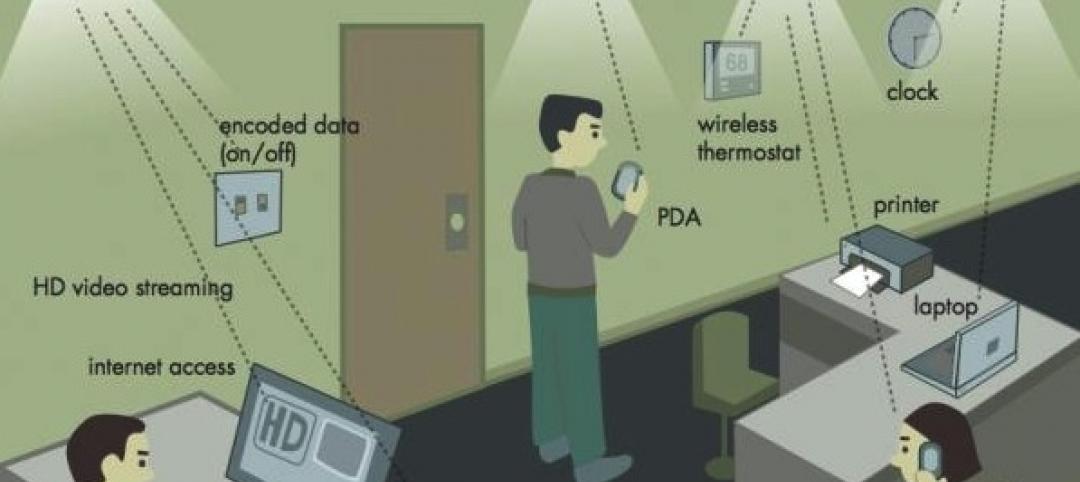WeWork, the fast-growing provider of co-sharing work spaces, has acquired Case, the New York-based building information modeling consultant.
The acquisition of comes a few months after WeWork, in June, announced that it had raised $400 million from investors, bringing its total funding to nearly $1 billion.
David Fano, one of Case’s three cofounders, explained that as part of WeWork, his firm’s design teams will be thinking more about “process improvements” and how it can take efficient space design, construction, and management to the next level. “We were really excited about being on the decision-making side … and having a direct hand in designing the construction we are going to do,” Fano told the Commercial Observer.
Fano says more than 90% of Case’s 63-person workforce is joining WeWork, and that his company will now work exclusively for its owner. He adds that the combination should help WeWork standardize the means by which it designs its properties.
Started less than five years ago, WeWork’s valuation is now somewhere between $5 billion and $10 billion. The company has more than 30,000 customers in 11 U.S. cities, and more than 1 million sf of shared office space in New York City alone. In the first half of 2015, WeWork was Manhattan’s most active tenant, according to The Real Deal.
Over the last 36 months, WeWork has grown to 70 employees from eight. A few months ago, Roni Bahir, its Executive Vice president of Strategic Development and Special Projects, said the company intends to open between 40 and 50 locations by June 2016, and add at least 50 million sq of space within the next five years. WeWork has been one of Case’s “owner” clients for the past three years.
When Case launched in 2008, it was operating out of one of WeWork’s spaces, and the two companies have since been linked at the hip as WeWork has expanded. The terms of the acquisition were not disclosed, but both Case and WeWork have moved into permanent headquarters at 115 West 18th Street in New York’s Chelsea neighborhood.
Related Stories
BIM and Information Technology | Dec 21, 2015
Laser scanning and in-shop prefabrication a boon for the WellStar Paulding Hospital
Contractor Brasfield & Gorrie’s use of BIM and prefabrication on the Hiram, Ga., hospital shows how digital tools can lead to savings, safety, and better construction.
Sponsored | BIM and Information Technology | Dec 17, 2015
How is the Value of VDC for Design Management Translating Outside the US?
Sascha Vesterlund, a VDC Specialist, Design Processer with MT Højgaard, and Nathan Wood, Innovation at DPR Construction, shared their perspectives on VDC
BIM and Information Technology | Dec 3, 2015
New app visualizes cellular and Wi-Fi signals in an area
Using data collected from millions of cell towers and Wi-Fi routers, the app makes the invisible visible.
BIM and Information Technology | Nov 30, 2015
Light-based wireless technology is 100 times faster than Wi-Fi
Li-Fi, which reaches speeds of 224 gigabits per second, is being tested in Estonia.
Sponsored | BIM and Information Technology | Nov 25, 2015
Contractor leverages dynamic site logistic plan as BIM deliverable
I recently sat down with two Architects-Turned-VDC-Process-Managers to discuss the ways in which they are leveraging technology to bring the value of BIM downstream
BIM and Information Technology | Nov 24, 2015
Solving the data conundrum with better tools to capture, share, and analyze information
At a recent Thornton Tomasetti symposium, experts showed how designs and projects can be improved by granular information that’s accessible to more users.
Modular Building | Nov 19, 2015
AECOM and Project Frog form partnership for building modular data centers
The Rapid Deployment Team will provide solutions for data centers both small (1 MW) and large (50+ MW).
BIM and Information Technology | Nov 18, 2015
AIA: Energy modeling key to reaching carbon neutrality in buildings
Energy modeling allows architects to be more ambitious with energy-saving in their design projects.
Green | Nov 17, 2015
DOE launches new data collaborative to help cities and states boost building efficiency
The SEED Standard will help manage, standardize, share performance data.
Sponsored | BIM and Information Technology | Nov 12, 2015
Is the PDF revolution advancing BIM workflows?
Many project teams who struggle to get everyone up to speed with BIM, find PDFs a useful tool to bridge the gap between the BIM world and the paper world














